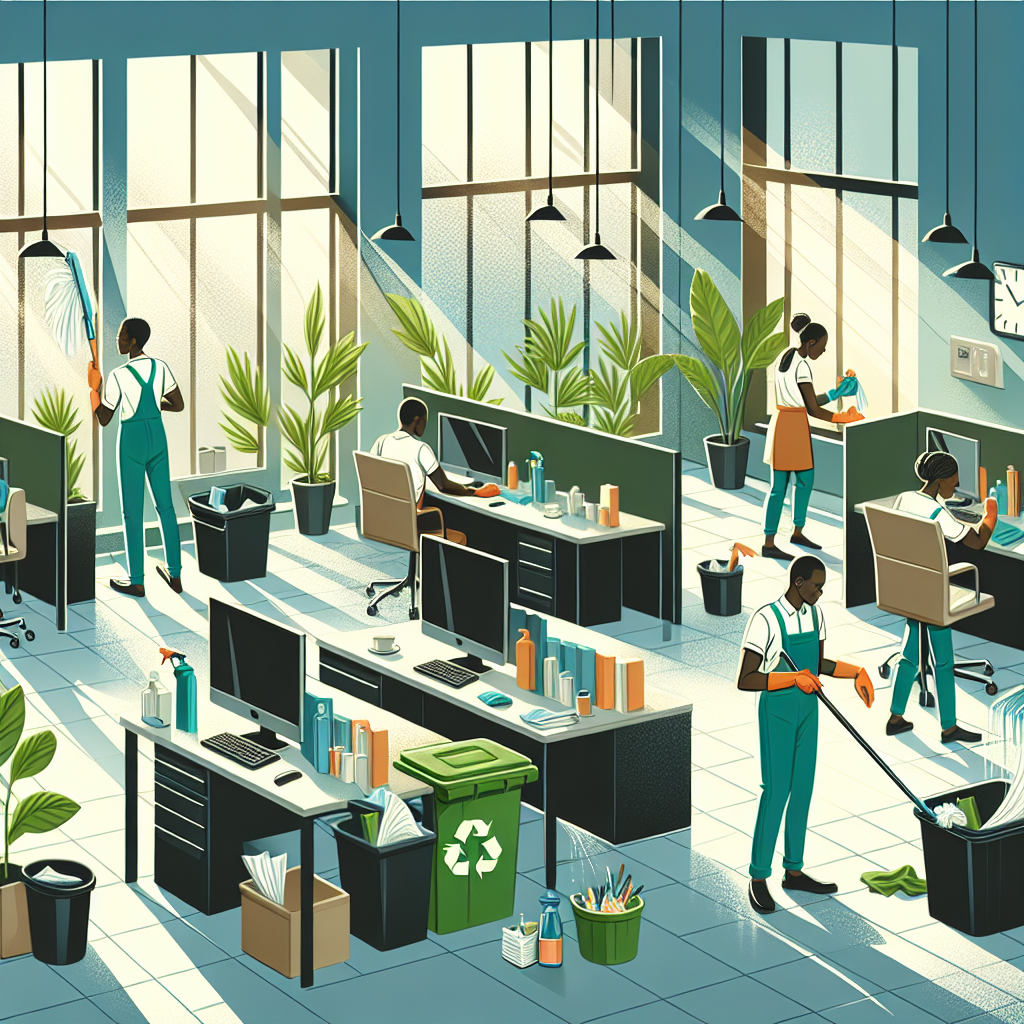“`html
Strategies for Sustainable Cleaning in Offices
In today’s world, businesses are increasingly aware of their environmental responsibilities. Implementing sustainable cleaning practices not only enhances workplace hygiene but also helps reduce the ecological footprint. This blog post will explore effective strategies for sustainable office cleaning, allowing organizations to foster a healthier work environment while promoting environmental stewardship.
The Importance of Sustainable Cleaning
Sustainable cleaning practices focus on reducing waste, conserving resources, and using eco-friendly products. As employees spend approximately one-third of their lives at work, maintaining a clean and healthy office environment is crucial. Here are some compelling reasons why businesses should embrace sustainable cleaning:
- Improved Indoor Air Quality: Eco-friendly cleaning products emit fewer harmful chemicals, ensuring better air quality for employees.
- Cost Savings: Sustainable cleaning often results in lower costs over time through reduced waste and the extended lifespan of office materials and fixtures.
- Enhanced Employee Productivity: A clean workspace promotes better focus and effectiveness, boosting overall workplace morale.
- Positive Public Image: Eco-conscious practices can improve your brand’s reputation among clients and customers.
Effective Strategies for Sustainable Office Cleaning
1. Choose Eco-Friendly Cleaning Products
Selecting green cleaning products is perhaps the most straightforward way to reduce your office’s environmental impact. Look for products that are:
- Biodegradable
- Free of harsh chemicals and toxins
- Certified by organizations like the Environmental Protection Agency (EPA)
- Packed in recyclable or biodegradable materials
By using eco-friendly products, you can ensure a safer environment for your employees while minimizing pollution.
2. Implement Proper Waste Management
A robust waste management system is essential for sustainable office cleaning. Consider the following steps:
- Recycling Programs: Set up recycling bins for paper, plastic, and metal throughout the office.
- Composting: Introduce compost bins for organic waste, such as food scraps from kitchen areas.
- Reduce Single-Use Items: Encourage the use of reusable dishware and utensils in kitchens and break rooms.
Effective waste management not only keeps the office clean but also dramatically reduces landfill contributions.
3. Optimize Cleaning Schedules and Practices
Efficiency is key when it comes to sustainable cleaning practices. Here are some strategies:
- Regular Deep Cleanings: Schedule deep-cleaning sessions periodically to avoid the buildup of dirt and germs.
- Target High-Traffic Areas: Focus on cleaning high-touch surfaces like doorknobs, light switches, and phones regularly to maintain hygiene.
- Adopt “Clean as You Go” Philosophy: Encourage employees to tidy their workspaces and communal areas to prevent clutter and maintain cleanliness.
4. Encourage Employee Participation
Creating a culture of sustainability involves all staff members. Here are some ideas to get employees involved:
- Training Sessions: Organize workshops to educate employees about the benefits of sustainable cleaning practices.
- Sustainable Cleaning Champions: Appoint individuals who can lead these initiatives and motivate their colleagues to participate.
- Incentive Programs: Create rewards for teams or departments that make notable contributions to sustainability in cleaning.
Conclusion
Implementing sustainable cleaning practices in the office is a win-win scenario—enhancing workplace hygiene while contributing to environmental preservation. By choosing eco-friendly products, optimizing cleaning schedules, managing waste wisely, and engaging employees, you can create a healthier and more sustainable work environment. Moving towards these practices not only reduces your ecological footprint but also enhances your brand image, attracts talent, and leads to a thriving workplace culture.
It’s time for businesses to embrace their role in sustainability and ensure their cleaning strategies reflect their commitment to a better future.
“`
